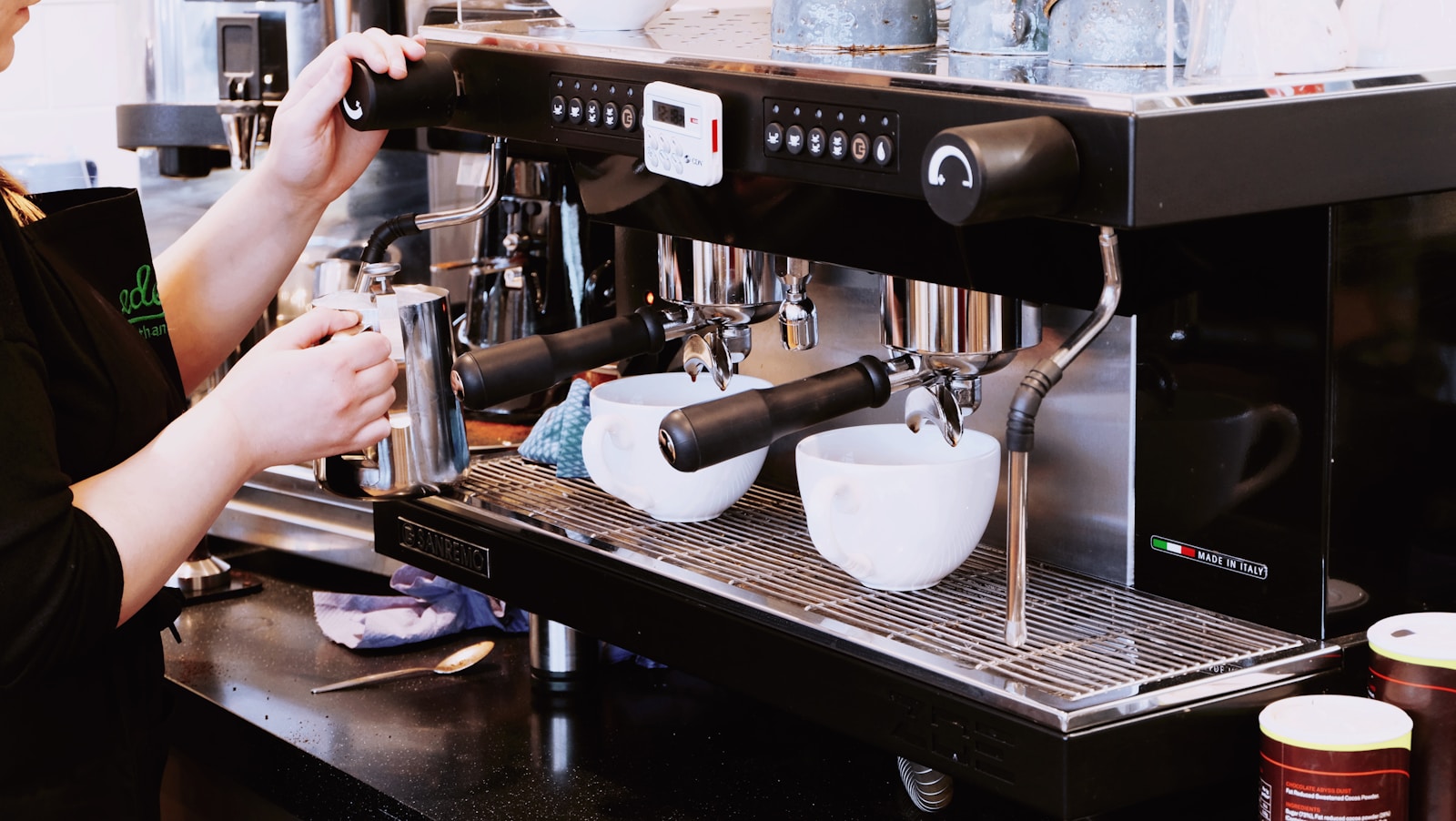Every coffee shop has a beating heart – a barista, who takes care of preparing and putting together drinks without any fault. Apart from having great customer service skills, baristas are trained to master a number of coffee-making techniques and ensure their customers have a great experience. The following article presents a complete barista s job description as well as tips for writing a resume, earning expectations, major duties, the skill set needed and questions & answers.
Barista job description
A barista’s primary responsibility is preparing a comprehensive list of drinks, which include alcoholic and non-alcoholic beverages; the barista, however, principally focuses on the art of espresso drinks.
Keeping people cheerful is a part of the job, as is helping with a drink selection, and satisfying the expectations of when and how the drink needs to be prepared. And in addition to making a great cup of coffee, there are style needs for the coffee shop atmosphere, as well as stock control and cash registers. It is the baristas who assist in achieving a friendly ambiance that makes the customers want to return again and again.
Resume Description for This Job
This is one resume description of a barista that would be most suitable for someone who will take the job, bearing in mind their skills and experiences:
“I have been working as a barista for quite some time now. My main aim has always been to serve customers who are calm and happy while enjoying the taste of espressos and other coffee beverages. I am well versed in composing and serving espressos, lattes and various kinds of coffee, as well as keeping order at the countertop space. I have outstanding communication and got great management skills as well which allows me to create the atmosphere pleasing and enjoyable and get the job done even during rush hours.”
Feel free to adjust details to better match your experience!
Salary
Different coffee shops and coffee establishments have different payment criteria and payments depend on location, experience and establishment type which the person works in. Here’s a breakdown of statistics, and general overview for instance:
- For an Individual New to This Profession: Introduction level average is between $10-$13 per hour.
- For An Experienced Barista of at least 2 years: The average salary range is between $13 to $16 per hour.
- For A Lead Barista or A Shift Supervisor: An average of from $16 to 20, per hour, above is reachable.
Most baristas are on hourly wage, however, gratuities are normal and these form a basis for many earnings overall. Some additional benefits from employers are also possible such as healthcare insurance, discounts, paid holidays – usually available for full time positions but sometimes part time too.
Responsibilities

Any barista, who is an employee, is also a customer service representative who assists in executing customer orders, cleaning areas, and making appropriate beverages. Some other important duties are as follows:
- Beverage Preparation: Preparing coffee composed of beverages and non-coffee beverages like espresso and lattes, as well as other tea and specialty drinks.
- Customer Service: Interacting with customers, taking their orders, responding to inquiries, and assisting them in making selections based on their needs.
- Cash Handling: Operating the cash drawer, conducting the necessary transactions, and conducting credit card payments accurately.
- Maintaining Cleanliness: Wiping coffee machines, counters, and tables used for eating, as well as scrubbing all the instruments and application of disinfection.
- Inventory Management: Keeping track of stock, supplying stocks to the point of sale or the storage space, and informing management about the supply in the store.
- Latte Art and Presentation: Forming latte creations to be a focal point of the entire experience as well as the presentation of all the drinks in addition to the pictures.
- Team Collaboration: Collaborating with members when shifts are busy and there is a need to distribute and handle different processes.
Qualifications
As a barista, candidates will require both technical skills and the willingness to provide the necessary customer service. Mandatory qualifications include the following:
- Experience: Some coffee shops may offer training but previously working as a barista or in the food industry may be an asset.
- Customer Service Skills: The customer’s experience can be made better with good interpersonal relationships.
- Attention to Detail: Resources are effectively utilized by taking measurements and recommendations given in the construct of drinks.
- Physical Stamina: The individual is hardened enough physically to be standing for long durations while performing intense activities.
- Communication Skills: There is a requirement to communicate with the customers when there is high traffic, albeit in a friendly manner.
- Knowledge of Coffee and Brewing Techniques: It helps if an applicant has knowledge about espresso machines and how to brew coffee.
FAQs
Q1: Is experience necessary to become a barista?
It is good to have some experience working directly or indirectly with customers, although baristas are trained by most coffee shops. Such kind of experience, however, may be useful for applicants enrolled for this course.
Q2: What is the career growth potential for a barista?
A barista can rise above her/his ordinary duties to become a lead barista, shift manager or perhaps the store manager. Subsequently, a section of these baristas may seek to work within specialty coffee locations in charge of roasting, training or owning the cafes.
Q3: Do baristas need certifications?
Such certification is not compulsory, however, some baristas can decide to go for coffee certifications, even done by SCA, for barista educational advance undertakings.
Q4: What skills should a barista include on their resume?
On a barista’s resume, skills like cash handling and time management, and experience in beverage preparation and customer service are key. It’s also good to include any experience in heavy volume that you might have had during your career.
Conclusion
To conclude, being a barista is more than just making coffee. A barista is an important role as he has to make the customers feel , “Wow what an experience it was”. With potential for jobs progression and transferable skills, such a role can be interesting and fulfilling as a whole.
